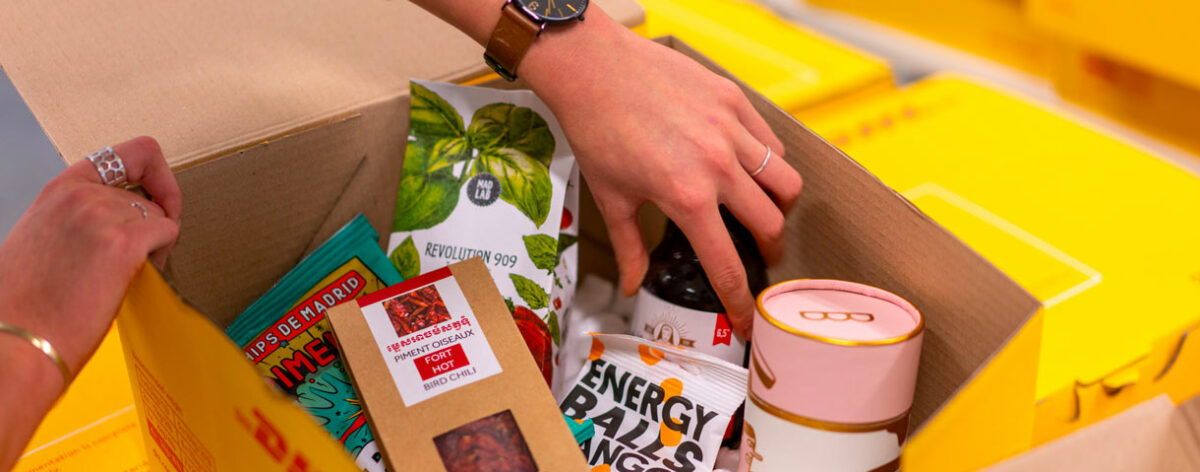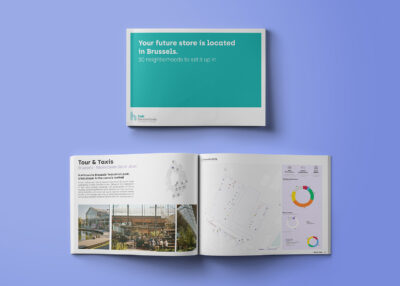
Brussels: Exports of goods are holding up under the crisis
On 19 November, during a joint video-conference, the three regions presented the figures for Belgian exports since the start of the COVID-19 crisis. Although Brussels is following the downward trend seen throughout the country, its exports have nonetheless suffered less than those of the rest of the country. Let’s see why, shall we?
For an international capital like Brussels, the near-total interruption of tourist travel and business stays, with a hotel occupancy rate 66% lower than in 2019, and the delaying of certain construction projects abroad and of foreign investment projects in Europe and Brussels in particular have led to a drastic reduction in all technical, legal, financial and lobbying services for foreign clients.
Yet, Brussels is the only Belgian region where services exports exceed those of goods. In fact, merchandise exports only account for 45% of Brussels’ total exports.
Increase in exports of goods from Brussels
And yet, although the Brussels region has followed the downward trend seen throughout Belgium during the March-August 2020 period, Brussels goods exports have suffered less (-5.06% compared with March-August 2019) than in the rest of the country (-14.49%).
For the June-August 2020 period, there was even a 10.4% increase in Brussels goods exports: the Region exported nearly €2 billion worth compared with €1.8 billion for June-August 2019, whereas Belgian exports decreased during this same period.
This less significant decrease in Brussels, can be explained by the drastic increase in exports of chemical industry products (+78.1%, increasing from €727 million to €1.2 billion), driven by pharmaceutical activities.
Brussels’ internationally renowned gastronomy
The food industry sector also occupies an important position in Belgium (19.5% of total revenue). In Brussels, 4% to 5% of exports involve the food sector.
Due to the crisis, Brussels food exports have dropped by 3.47% compared to 2019 (for the March-August period). Brussels’ share of Belgian food product exports has increased slightly nonetheless (1.82% for March-August 2020 compared with 1.8% for March-August 2019).
“The Brussels food industry is known around the world for its quality. And not only for its beers and waffles. Sweets and dry goods, for example, also draw the attention of foreign buyers”, emphasises Pascal Smet, Secretary of State for Foreign Trade and European and International Relations.
The Brussels main food exports include chocolate and other food preparations containing cacao (18.05%) as well as cereal-based products (17.41%) and bakery, patisserie and biscuitry (12%) products.
Since 2016, hub.brussels has invited, in marge of the well-known Eat !BRUSSELS, Drink !BORDEAUX festival organised by visit.brussels, a delegation of foreign buyers to meet Brussels producers during the festival, and to visit their premises, taste their products and place orders.
hub.brussels has reworked its formula this year to take the health crisis into account. The world can’t come to taste Brussels’ gastronomy? No matter: Brussels gastronomy will join tables around the world, for a massive, long-distance tasting!
300 kg of Brussels merchandise sent to the four corners of the world
At the end of August, hub.brussels launched a call for Brussels companies seeking to introduce their products to potential international buyers.
Nearly 35 companies signed up and more than 80 potential buyers from 18 countries made themselves known. They included buyers from neighbouring countries as well as buyers from Italy, Spain, Poland, Sweden, Finland, Croatia, Canada, the United States, Kuwait, the United Arab Emirates, China, South Korea, Singapore, Vietnam and Japan.
“Since we can’t bring buyers to Brussels, let’s bring Brussels to the buyers! Faced with this situation, we must be creative and continue to support our companies’ exports, because international development is a genuine lever for reopening. Like a dating site, hub.brussels organised virtual meet-ups with Brussels producers and foreign buyers. The use of a virtual platform is innovative in the food sector, especially when it involves organising tastings,” explains Isabelle Grippa, CEO of hub.brussels,
This initiative was a major human and logistical challenge: hub.brussels received nearly 300 kg of Brussels merchandise for tastings, including fresh, dry and even frozen products, to be sent to the four corners of the world.
These products were then tasted in real time by potential distributors and foreign importers, via a platform for virtual gatherings. In all, more than 130 meetings were arranged during this culinary marathon.
Realise your online export projects with the Export Talks
hub.brussels’ internationalisation support department made the best of this crisis period, less burdened logistically and organisationally, to work on support tools to better serve and equip (new) exporters during and after the crisis, notably via the Export Talks, a series of 25 webinars on exporting to prepare for the upcoming reopening of the economy and to provide companies with the tools to conquer new markets.
Do you want to be kept up-to-date on similar initiatives?
Do you want to export with hub.brussels?
More news on our blog

Brussels to California: keeping the American Dream alive
Posted on 27/10/2025
